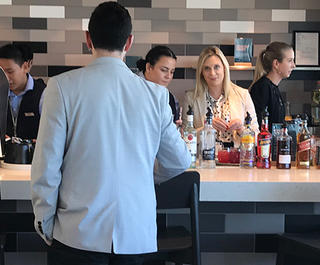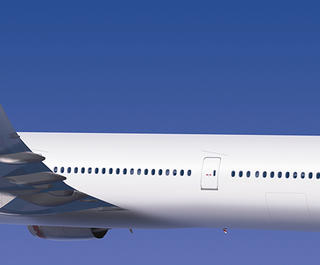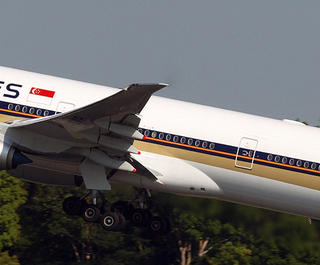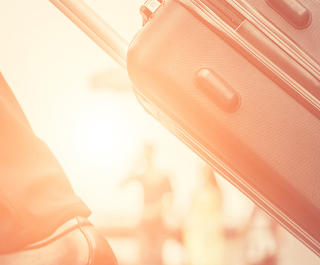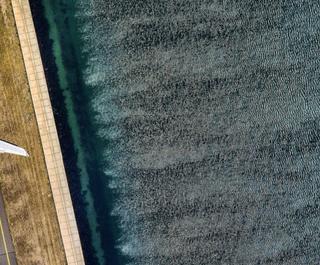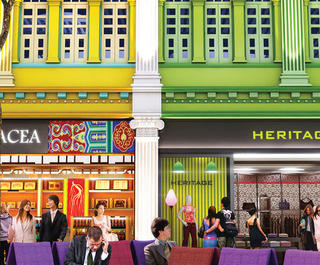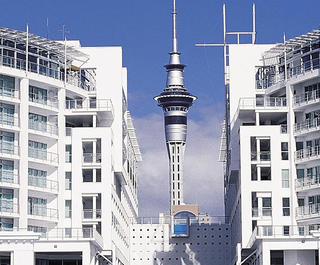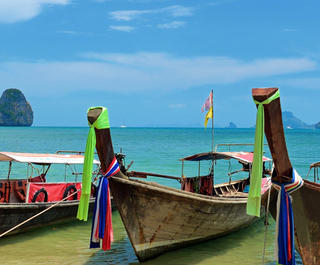
Travel operators are always searching for the holy grail – the next best way to attract your business – and business travellers are increasingly in a position to call the shots. We spoke to Melbourne-based futurist and technology expert Chris Riddell, a renowned strategist and global trend spotter for businesses in this disrupted digital world, about what lies in store this year.
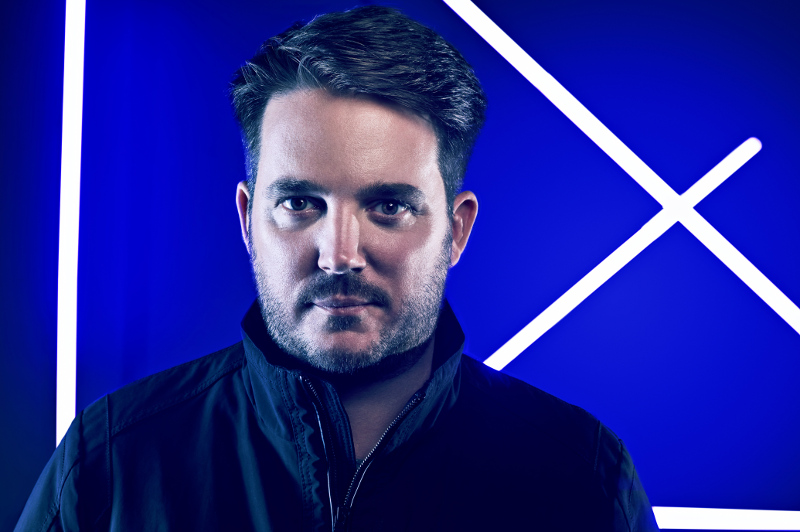 Futurist and technology expert Chris Riddell.
Futurist and technology expert Chris Riddell.Riddell says the rise of the Millennial generation, a changing workforce and advancing technology has created an always-on lifestyle, where the line between business and leisure has almost disappeared. This has created a craving for a more personalised travel experience and a demand for connectivity whenever, wherever business travellers may be.
Travel operators are responding to these business travel needs by rushing to offer Wi-Fi, catering to mobile devices, scanning loyalty data for ways to make business travellers feel special, and generally stepping up their game. Here are Riddell’s business travel trends for 2017.
Rise Of The Small Business Traveller
Small business travellers are the next big target market, as the business travel landscape changes dramatically, Riddell says. Entrepreneurs and start-ups are springing up almost overnight, spend a lot of money to get around the world, and have a high discretionary spend.
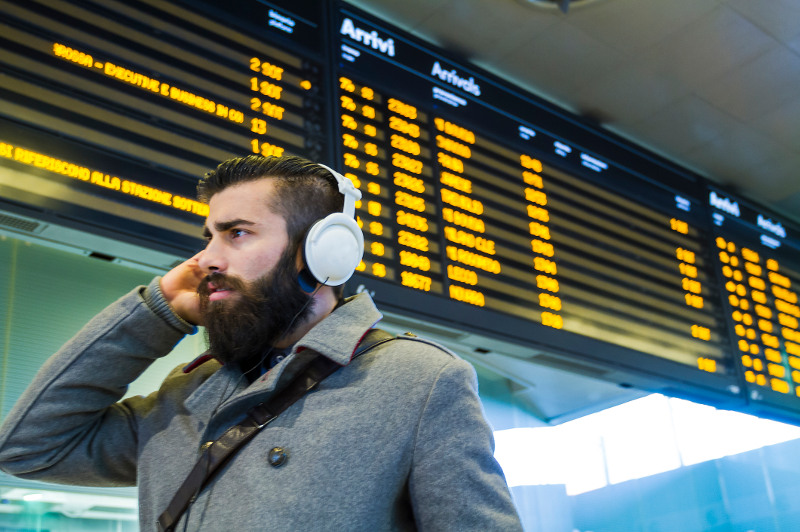 Small business travellers won't hesitate to switch to a better service. Picture: Getty Images
Small business travellers won't hesitate to switch to a better service. Picture: Getty Images“With the small business and entrepreneur start-ups now, if something goes wrong on their flight experience, they can change provider, and will change who they spend their money with at the drop of a hat. From a business travel point of view, the big change now is trying to attract these entrepreneurs.”
This means personalisation and connectivity. “It’s about identifying customers and making sure they’re getting a special experience, and making sure the technology’s there. Entrepreneurs, start-ups and tech businesses – these guys don’t see working hours as nine to five any more. They need access to technology 24 hours a day, and sitting on a plane on a 24-hour flight to Europe with no connectivity is no longer acceptable.”
Bleisure Keeps On Blending
The internet has brought massive disruption to the old model of a job – or even a career – for life. Millennials are known for changing jobs frequently, eschewing full-time work, and avoiding offices.
 Is it work, or leisure? Picture: Getty Images
Is it work, or leisure? Picture: Getty Images“The Millennial generation are now juggling multiple incomes, freelancing, often doing multiple jobs at the same time,” Riddell says. “They don’t see work as being in an office, they see it being this blended part of their life, whether they’re travelling, whether they’re on holiday, or in the office (if they have an office).”
For this generation, and the one to come – Generation Alpha – the line between business travel and leisure travel is growing ever thinner. “Here’s the thing: the businesses that are thriving and appearing out of nowhere and changing the world – they’re not setting their out-of-office on.”
Wi-Fi In The Skies
“We now are entering an era where we’re demanding high-speed internet connectivity in our flights,” Chris says. “When I travel now, if I’m doing long-haul travel, I choose an airline not just for the service, but also the connectivity.”
While many carriers already have this on a global level, including Emirates, Etihad, and Singapore Airlines, Australian carriers have been slow to get on board. “In the US, you have high-speed internet Wi-Fi and live television that you can choose when you’re up in the air ... but over here in Australia we’ve been a little bit behind the curve.”
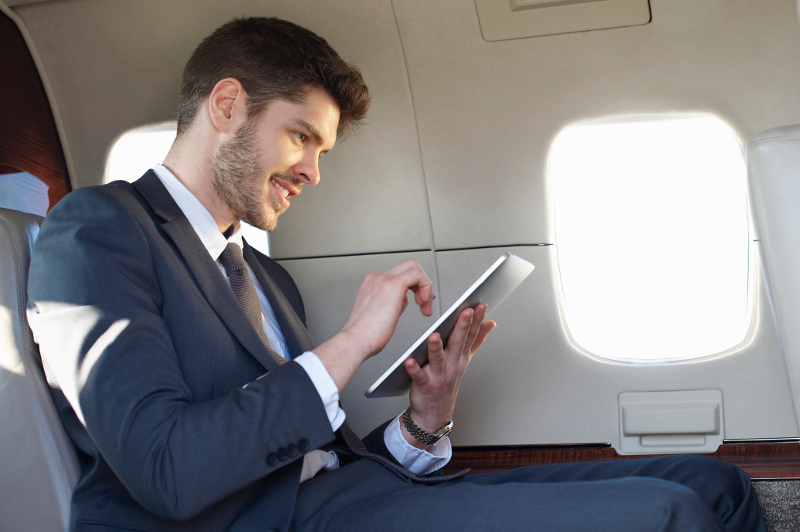 Business travellers are demanding connectivity in the air. Picture: Getty Images
Business travellers are demanding connectivity in the air. Picture: Getty ImagesThat’s about to change, with Qantas and Virgin trialling in-flight Wi-Fi. Qantas will begin a Wi-Fi trial next month on a Boeing 737-800 jet. Passengers on the jet's domestic flights will reportedly have access to broadband good enough for streaming movies and live TV. The airline plans to roll out Wi-Fi across its domestic Boeing 737-800 and Airbus A330 fleet, from February 2017.
Virgin Australia has announced it will introduce inflight Wi-Fi on its domestic and international fleet from the middle of this year. Virgin Australia group chief executive John Borghetti said in a media release: “We believe our inflight Wi-Fi service will be popular with business travellers but also have widespread appeal for all our guests by enabling them to stay in touch and access the internet throughout their journey.”
Similarly, Air New Zealand says flights between Australia and New Zealand will be the first to receive connectivity starting in the second half of this year, with internet services available progressively on Tasman, Pacific Island and long-haul jet fleets from the end of next year.
Corporate travel goals: Business Travel Resolutions To Keep In 2017
Review and reassess: 15 Reasons You Should Let FCBT Handle Your Business Travel In 2017
Keep connected: 6 Cool iPhone Tricks For Business Travellers
Mobile Makes It Happen
We’re more mobile than we’ve ever been and that is only going to grow. “Australia is one of the highest adopters of mobile technology in the world – we love spending money on technology,” Riddell says. “That’s driving a lot of growth in the mobile area across many industries. Within travel, Qantas and Virgin have got quite different offerings when it comes to the mobile experience – I expect that to be really big.”
The Qantas app lets you use mobile check-in and access your boarding pass, check your flight status, view your frequent flyer points activity, select your seat, and sends check-in, boarding time and baggage alerts. It also lets you know what time to leave and the fastest way to airport.
Qantas recently launched a new virtual reality app that allows customers to explore Australian landscapes before travelling there. This follows an industry-first virtual reality experience with headsets in its first class cabins and lounges.
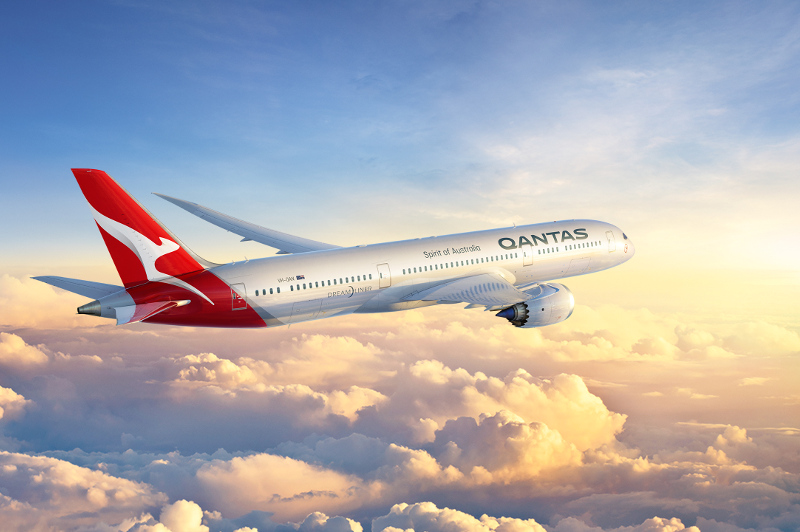 The new Dreamliner will cater more for mobile devices. Picture: Qantas
The new Dreamliner will cater more for mobile devices. Picture: QantasIn October, the airline unveiled seating plans for its flagship 787-9 Dreamliner, which arrives at the end of this year. Both business and economy seats include in-seat USB and PC charging; and even economy passengers have a personal electronic device shelf.
Virgin Australia’s app, meanwhile, lets you check in and access your boarding pass, check your flight status, departure and arrival information, and offers a range of features for Velocity members. It also has an in-flight entertainment app that lets you stream Virgin Australia’s in-flight entertainment to your mobile device for free.
‘Sharing Economy’ Forces Innovation
On the ground, the rise of Airbnb has sent ripples through the travel industry, but it has created benefits for business travellers. “A lot of people said it was going to be the downfall of hotels – far from it. Hotels have had to step up their game and really show what their difference is,” Riddell says.
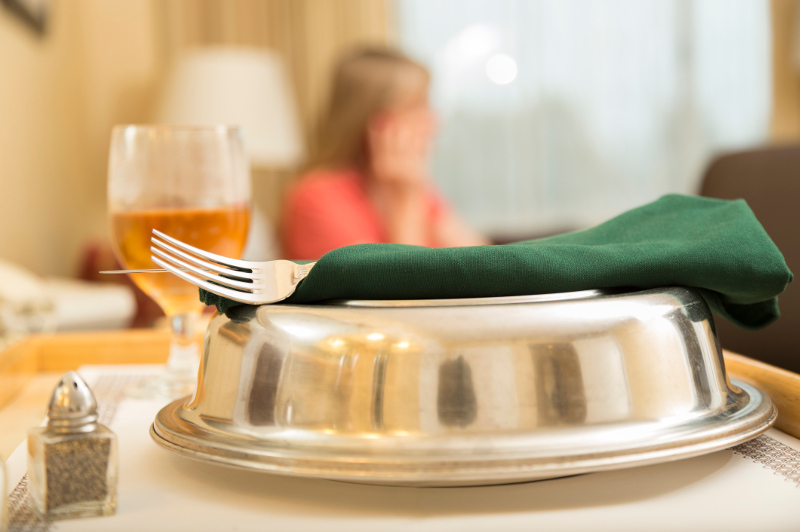 Boutique hotels offering 24-hour room service add a personal touch. Picture: Getty Images
Boutique hotels offering 24-hour room service add a personal touch. Picture: Getty ImagesOne example is 24-hour room service, a plus for the business traveller who gets to the hotel at three in the morning. And as travellers seek a more personalised experience, “the big hotels are going now for a much more boutique, non-generic feel”.
“Through the loyalty program they recognise you coming again and again, and reward you not just with points but with moments of delight. Hotels have stepped up the game, and we’re going to continue to see the sharing economy play heavily into this.”
Personalised Experiences
Riddell says travel providers will focus on personalising your experience over the next 12 months, with airlines leading the way through loyalty program data.
“When you board a flight at the moment, the experience you have is still pretty generic – you sit in front of a television on a plane and there’s no personalisation that comes with that screen experience,” he says. “Airlines will now really start to use the data on their travellers – information about you – to start to customise the content in front of you when you sit in that seat.”
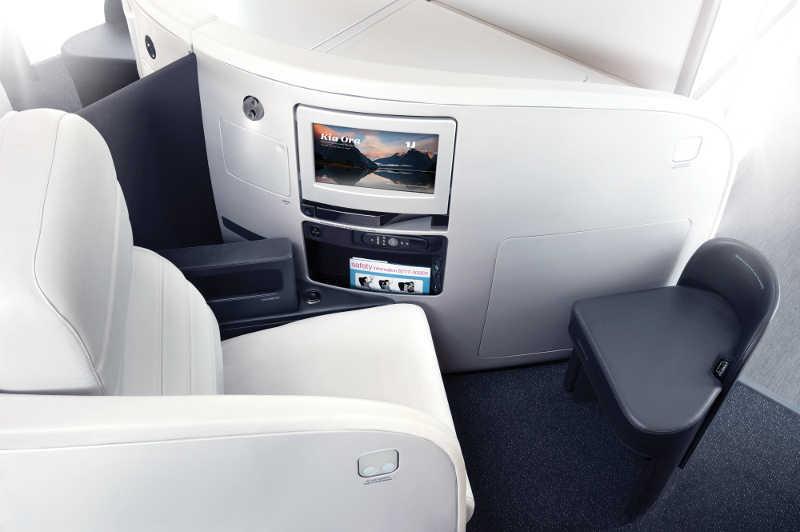 Screens greet business class travellers by name. Picture: Air New Zealand.
Screens greet business class travellers by name. Picture: Air New Zealand.One example is Air New Zealand. Its inflight entertainment system greets Airpoints loyalty members by name and lets them buy food, drink and merchandise from their seatback, using Airpoints Dollars – earning the airline a Best Personalisation Innovation gong at last year’s APEX (Airline Passenger Experience Association) Awards.
It doesn’t end there. “Loyalty programs in the travel industry are some of the most revered and sought-after of any industry ... so using that data now is going to be at the very core for the travel industry. They know how often you fly, your preference for seating when you fly, where you’re flying to, where you’re going to be flying to, with advance tickets. They know who you work for and how much you spend.”
And what does Riddell have on his business travel wishlist? “I’d love to see showers on every single one of my flights! Really, I think feeling like an individual when you’re boarding a flight, not just another generic passenger, that’s the holy grail of travel.”


